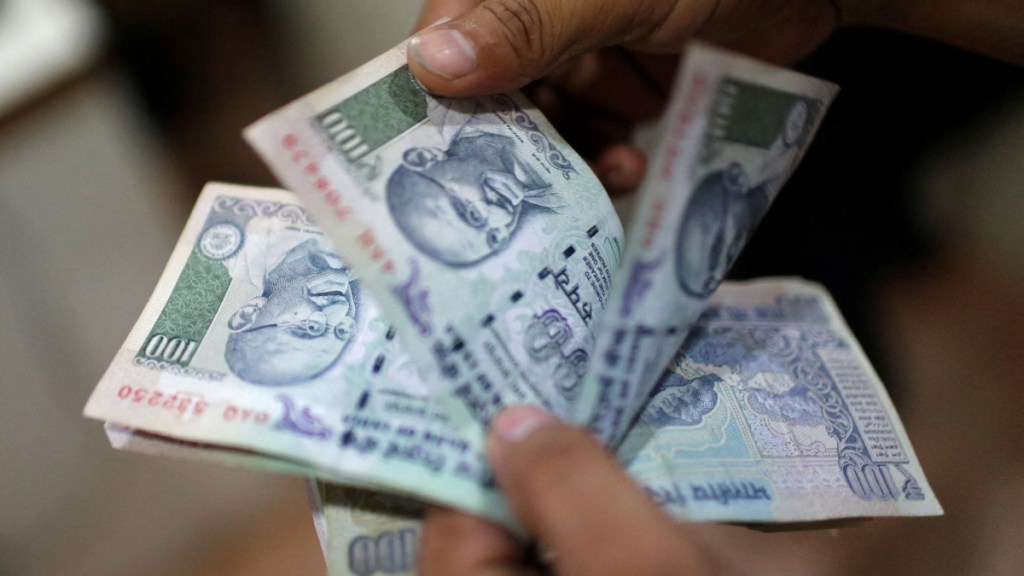By Srinath Sridharan
Many of today’s mainstream retail banking products or equities market products were non-existent even half a century ago, highlighting the dynamic nature of financial markets, and what constitutes a financial asset. Embracing a forward-thinking approach that balances regulatory oversight with fostering innovation is imperative to navigate the evolving landscape of digital finance and ensure its positive contribution to economic growth and financial inclusion.
While the Reserve Bank of India (RBI) rightfully maintains its opposing against allowing cryptocurrencies, it is crucial to recognise the distinction between cryptocurrencies and Virtual Digital Assets (VDAs) that can be effectively regulated. The Indian government’s engagement at the IMF level underscores the importance of addressing digital asset-related concerns within a regulatory framework. A taxation framework for VDAs was introduced in the Finance Bill 2022 to provide for taxation and withholding of tax pertaining to VDAs. The government has extended the anti-money laundering provisions to VDA businesses and service providers. A digital asset encompasses anything created and stored in digital form, possessing identifiable and valuable attributes. Examples include data, images, videos, written content, and audio files, each with assignable ownership rights.
The Howey Test is a legal assessment used in the United States to determine whether certain transactions qualify as “investment contracts” and therefore fall under the jurisdiction of securities regulations. The test originated from a Supreme Court case, SEC v. W.J. Howey Co. (1946), and it consists of four criteria: (1) an investment of money, (2) in a common enterprise, (3) with an expectation of profits primarily from the efforts of others, (4) which must be a result of managerial or entrepreneurial efforts. When applied to VDAs, the Howey Test can have significant implications. If a token sale meets the criteria of the Howey Test, the token could be classified as a security, subjecting it to securities regulations, including registration requirements with the Securities and Exchange Commission (SEC). This classification could impact the ability of issuers to conduct token sales and require them to comply with strict regulatory frameworks, potentially affecting their fundraising strategies and operational flexibility in the digital asset space.
As India’s economy increasingly integrates with the global digital landscape, the regulation of VDAs needs a parent. Moreover, regulation can help mitigate risks such as fraud, money laundering, and market manipulation, thereby protecting consumers and maintaining market integrity.
To adapt the Howey Test for VDAs and create an indigenous version, India could introduce the “Howdy Test for VDAs,” tailored to the unique characteristics of the digital asset landscape. This test could incorporate criteria such as assessing the underlying value proposition of VDAs, including their utility, functionality, and potential for market adoption. Additionally, real-time mark-to-market valuation mechanisms could be implemented, leveraging data from VDA exchanges and issuers to ensure transparency and accuracy in pricing. The Test could also evaluate the level of decentralisation permissible and governance mechanisms within VDA ecosystems, determining the degree of reliance on centralised entities and the distribution of decision-making power among participants.
The Market Infrastructure Institutions (MII) regulations established by the Securities and Exchange Board of India (Sebi) outline key features designed to regulate various market infrastructure entities such as stock exchanges, clearing corporations, and depositories. These encompass a comprehensive framework covering aspects like governance, operational standards, risk management, and compliance requirements. One of the primary reasons why MII regulations are well-suited to regulate VDAs is their emphasis on ensuring the integrity, efficiency, and stability of market infrastructure. By applying these regulations to VDA exchanges, Sebi can enforce robust governance standards, promote transparency, and safeguard investor interests within the digital asset ecosystem. Additionally, the risk management provisions embedded in the MII regulations can help mitigate potential risks associated with VDAs.
Applying comprehensive regulations to the technology-driven VDA sector addresses concerns regarding the expertise and regulatory maturity of founders and teams. This approach enables VDA sector founders to remain in the CapTable, while leveraging the expertise of experienced business leaders to lead the operations of MIIs. By allowing seasoned professionals with industry knowledge and regulatory acumen to helm MIIs, potential gaps in governance and operational oversight can be filled. This dual approach ensures that the innovative spirit and technological prowess of founders are complemented by the strategic guidance and regulatory compliance expertise of seasoned business leaders.
Treating VDAs as assets and regulating their transactions through formal VDA exchanges offers several advantages. First, categorising VDAs as assets provides legal clarity and recognition, allowing for their inclusion within existing regulatory frameworks. This approach enables oversight and supervision by financial regulators, ensuring compliance with laws and regulations aimed at investor protection and market integrity. Sebi’s expertise in regulating financial markets, coupled with its mandate to promote investor confidence and safeguard market integrity, positions it as the most suitable authority to regulate VDAs in India.
Sebi’s regulatory oversight would enhance corporate governance standards of VDA exchanges, ensuring transparency, accountability, and fair practices. Moreover, Sebi’s market intelligence capabilities would enable effective monitoring of VDA market activities, identifying and addressing potential risks or anomalies promptly. By imposing fit and proper criteria for individuals running VDA exchanges, Sebi can ensure that only qualified and trustworthy professionals manage these platforms, enhancing investor confidence and trust in the ecosystem.
Its experience stems from its pioneering efforts in bringing technological advancements to the equities markets nearly three decades ago. Furthermore, Sebi’s proven track record in addressing the grievances of millions of retail investors underscores its capability to effectively regulate complex markets.
The author is a Policy researcher and corporate advisor.
X : @ssmumbai
Views are personal.

